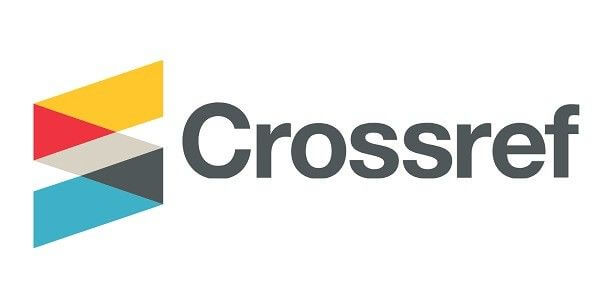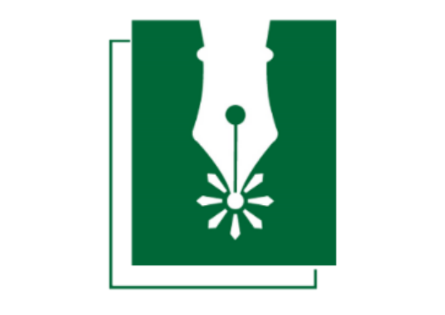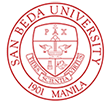Sustainable Development Practices Implemented by the Community Partners of San Beda University (SBU)
Keywords:
community partners, economic, environment, social, sustainable developmentAbstract
Sustainable development is a flagship subject of the stewardship ideology, an advocacy principle and challenge in the business implementation across the enterprises, big or small, all over the world. With the dynamic global scenario, the HEIs in the Philippines need to teach and support these sustainable development not just through its academic programs but to its community extension actions. To be able for San Beda University to do its responsibility in teaching and implementing sustainability, there is an immediate need to assess the current sustainability practices of the community partners of Community Engagement Center (CEC).The main objective of this research study is to identify the sustainability practices of the five community partners of CEC-SBU based on Elkington’s model of sustainability wherein it is three pillar model namely, environmental, economic and social sustainability requires equal attention. This study also aimed to determine the best practices of these community partners. The data collected are based on semi-structured interviews and field visits to the community partners. The results showed that the common SD practices identified are water utilization (under environmental dimension); maintain good quality of products (under economic dimension); and generation of employment and income, product safety, safety standard of work, organizational ethics and social interaction (under social dimension). The best SD practices were also evaluated. The study confirms the proposition that community partners of CEC-SBU shows low level of implementation in the environmental sustainability dimension. The results of this research can serve as a reference and guide in the community engagement agenda and activities of all SBU faculties, administrators, service personnel and students towards sustainability. The researchers recommend that CEC-SBU should conduct activities and other interventions for the community partners that enable adoption of SD practices especially those under environmental sustainability dimension. Future researchers must undertake further studies that describe, evaluate and measure the sustainable practices of community partners of CEC and SMEs in specific industries.
References
Aldaba, R. (2008). SMEs in the Philippine manufacturing industry and globalization: Meeting the development challenges. Philippine Institute for Development Studies Discussion Paper Series 2008-15. https://dirp3.pids.gov.ph/ris/dps/pidsdps0815.pdf
Commission on Higher Education (2016). Pathways to equity, relevance and advancement in research, innovation, and extension in Philippine Higher Education. (Commission on Higher Education Memorandum Order 52 Series 2016). https://ched.gov.ph/wpcontent/uploads/2017/10/CMO-52-s.-2016.pdf
Heizer, J., & Render, B. (2017). Operations management: Sustainability and supply chain management(12th edition). Pearson Education, Inc.
Harmsen, J., & Powell, J. (Eds). (2010). Sustainable development in the process industries: Cases and impact. Wiley & Sons, Inc.
Jansson, J., Nilsson, J., Modig F., Vall, G., (2015). Commitment to sustainability in small and medium-sized enterprises: The influence of strategic orientations and management values. Business Strategy and the Environment, 26, 69–83. https://www.doi.org/10.1002/bse.1901
Kates, R., Parris, T., and Leiserowitz, A. (2005). What Is Sustainable Development? Goals, Indicators, Values, and Practice. http://www.heldref.org/env.php
Kibira, D., Jain, S., and McLean, C., (2008). A system dynamics modeling framework for sustainable manufacturing. Proceedings of the 27th Annual System Dynamics Society Conference. https://www.nist.gov/publications/system-dynamics-modelingframework-sustainable-manufacturing
Majid, Izaidin Abdul &Koe, Wei-Loon. (2012). Sustainable entrepreneurship (SE): A revised model based on triple bottom line (TBL). International Journal of Academic Research in Business and Social Sciences, 2(6), 293-210. http://hrmars.com/admin/pics/855.pdf
Natarajan, G., and Wyrick, D. (2011). Framework for implementing sustainable practices in SMEs in the United States. Proceedings of the World Congress on Engineering, 1, 750–754. http://www.iaeng.org/publication/WCE2011/WCE2011_pp750-754.pdf
Orosa, Rosalinda, L. (2014). SMEs need gov’t support to implement sustainability standards. The Philippine Star. https://www.philstar.com/business/business-asusual/2014/10/06/1376839/smes-need-govt-support-implementsustainability-standards
Rogers, Peter, P., Jalal, Kazi, F., & Boyd, John, A. (2008). An introduction to sustainable development. Earthscan Publishing.
Roxas, B. &Chadee, D. (2012). Environmental sustainability orientation and financial resources of small manufacturing firms in the Philippines. Social Responsibility Journal, 8(2), 202–226. https://doi.org/ 10.1108/17471111211234842
Roxas, H., Lindsay, V., Ashill, N.,&Victorio, A. (2009). Economic accountability in the context of local governance in the Philippines: A structural equation modelling approach. Asia Pacific Journal of Public Administration, 31(1), 17-37. https://www.doi.org/10.1080/23276665.2009.10779354
San Beda University (2020). Community Engagement Center Home Page. https://www.sanbeda.edu.ph/CEC/210/communityengagement-center-homepage
Slaper, T. F. & Hall, T. J. (2011).The triple bottom line: What is it and how does it work? Indiana Business Review,86(1), 4–8 https://www.ibrc.indiana.edu/ibr/2011/spring/pdfs/ article2.pdf
- PDF | 238
- Abstract Views | 465
Published
How to Cite
Issue
Section
Copyright (c) 2023 Zernan De Ramos, Gary Galang

This work is licensed under a Creative Commons Attribution-NonCommercial-NoDerivatives 4.0 International License.











